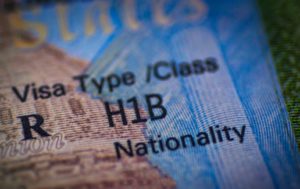
An arrest for driving under the influence (DUI/DWI) can result in the revocation of your H-1B visa or its non-renewal. Consular officials with the U.S. Department of State have the discretion to revoke or decline to renew your visa regardless of whether you get charged or convicted of DUI.
Whether the state revokes or non-renews your H-1B visa usually depends on the specific facts involved in your case, like:
- your blood alcohol concentration (BAC) at the time of the arrest,
- whether any other charges were filed in your criminal case (for example, reckless driving),
- whether or not any drugs were involved,
- your criminal record, and
- whether your DUI arrest resulted in misdemeanor or felony DUI charges.
In addition, your employer may lawfully fire you following a DUI. Given the requirements for an H-1B visa, termination of your employment may trigger the revocation of your visa itself.1
It is critical you contact a criminal defense attorney or a U.S. immigration lawyer immediately following a DUI arrest to improve your chances of keeping your H-1B visa.
1. How does a DUI affect H-1B status?
Getting your H-1B visa revoked or non-renewed due to a DUI does not affect your “status.” You can still work and live in the U.S. Though if you leave the country, then you would not be able to reenter unless you get a new visa.
If your employer fires you for getting a DUI, you usually have a 60-day grace period to obtain new employment before you are “out of status.”
2. What is an H-1B visa?
An H-1B visa is a nonimmigrant visa given to authorized foreign professionals working in a “specialty occupation” for a USA employer.2 Specialty occupations are ones that require:
- the application of highly specialized knowledge, and
- the attainment of at least a bachelor’s degree.3
These occupations are usually found in the following fields:
- mathematics,
- engineering,
- technology, and
- medical sciences.
Note that H-1B visas are nonimmigrant visas as opposed to immigrant visas. Nonimmigrant visas are considered temporary in nature as they allow you to remain in the U.S. for work purposes. Immigrant visas allow qualified persons to live in the U.S. permanently and obtain a green card.
If you wish to obtain an H-1B visa, you must file a visa application and complete a visa interview with the United States Citizenship and Immigration Services (USCIS).
If you are granted a visa, you must meet certain requirements to keep the visa. For example, you must maintain your employment. Since your employer can fire you for getting a DUI, you could then get your visa revoked as well.
3. Does a DUI have any immigration consequences?
Most convictions for driving under the influence of alcohol will not have negative immigration consequences for immigrant visa holders.
DUI is usually not considered a crime involving moral turpitude (CIMT).4 Courts have repeatedly held that simply driving under the influence (on its own) is not grounds for removal or deportation.5
Note, however, that DUI charges could negatively impact your immigration status if:
- you were convicted of another crime based on the same incident or had a prior criminal record, and
- the total sentences handed down for all your crimes adds up to more than five years.6
4. Should I contact a DUI lawyer for help?
Yes. If you hold a H-1B visa and get arrested for DUI, you should contact a DUI lawyer or immigration attorney for help.
As a criminal defense attorney and immigration lawyer, I can help you understand the laws applicable to your DUI case. I can also help you craft a legal defense to maximize the odds of you keeping your H-1B visa. In my experience, some effective defenses include showing that:
- the police arrested you without probable cause,
- you were not “impaired” while driving, and/or
- the authorities made errors in performing your breath or blood test.
Additional Reading
For more in-depth information, refer to these scholarly articles:
- Deporting Nonviolent Violent Aliens: Misapplication of 18 U.S.C. 16(B) to Aliens Convicted of Driving under the Influence – DePaul Law Review.
- Deporting Legal Aliens Convicted of Drunk Driving: Analyzing the Classification of Drunk Driving as a Crime of Violence – Marquette Law Review.
- Drunk Driving and Deportation – Should DUI Convictions Be Treated as Crimes of Violence for INS Removal Purposes – Washington University Law Quarterly.
- Deportation and Driving: Felony DUI and Reckless Driving as Crimes of Violence following Leocal v. Ashcroft – Journal of Crime and Criminology Law.
- DUI as a Crime of Violence under 18 U.S.C. 16(b); Does a Drunk Driver Risk Using Force – Loyola University of Chicago Law Review.
Legal References:
- Note that 22 CFR 41.122 is the U.S. law that provides consular officers with the general authority to revoke a nonimmigrant visa.
- Note that an H-1B visa is not the same as an H-4 visa, which is granted to family members of H-1B visa holders.
- See Department of Labor website, “H-1B Program.”
- See Matter of Abreu-Semino, 12 I&N Dec. 775, 777 (BIA 1968).
- See same.
- INA 212(a)(2)(B).

